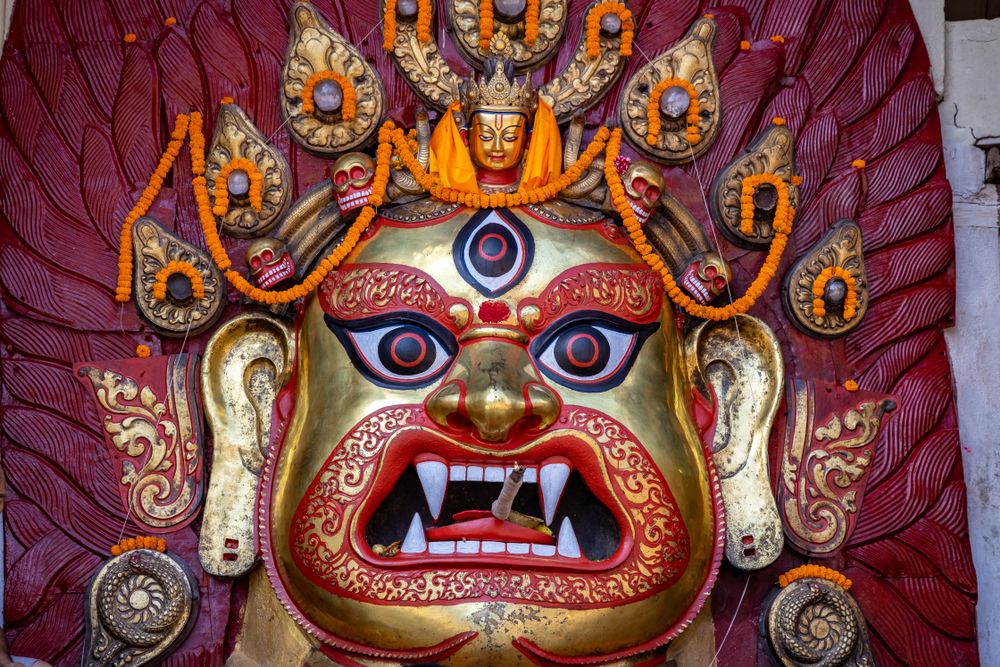
“Life isn’t fair, but God is good.” If you grew up in a Christian home, you’ve likely heard this phrase at least once. But if you used that phrase around Greeks in antiquity, they’d look at you a little funny. Why? Because their deities did some pretty horrible things. Most folks already know that Zeus and the rest of the Olympic pantheon could be positively awful, but a quick sampling reveals terrible acts from other sleazeball gods around the ancient world.
Indra: A Thundering Philanderer
Indra has a long history in Vedic religion. He was a storm and thunder god, but the Ancient History Encyclopedia explains that he was also a king of the gods. Earlier myths chronicle him fighting vicious demons and bringing life-giving rain. Later stories portray him as an insecure philandering trickster. “The Nymph and the Sage” shows Indra sending the beautiful Menaka to distract the ascetic Viswamitra from his self-denial. The reason? Indra and other gods were afraid of the sage’s potential power.
Perhaps Indra’s worst acts were his infidelities, as he frequently seduced others’ wives. He gets some comeuppance when he pursued Ahalya, wife of the Gautama. Sources differ on whether Ahalya consented to the acts or Indra assaulted her. Yet in every version, the enraged sage Gautama curses both Indra and Ahalya. But Indra didn’t meet his match until another furious husband cut him to pieces as revenge.
Everyone Stinks Here: Freya and the Missing Necklace
Freyja was a gorgeous Norse fertility goddess who rode a chariot pulled by two cats. But her adventures aren’t limited to taming cats. Another Ancient History Encyclopedia entry details how she obtains the Brísingamen. This stunning fiery gold necklace became one of her most treasured possessions.
Freyja got the Brísingamen by spending one night with each of the four dwarves who’d helped craft it. Loki tattles on Freyja to Odin, who in turn demands that Loki steal the necklace. In one version of the story, Odin refuses to return the necklace until she agrees to cause a massive war leaving hundreds of warriors dead. This enlarged Valhalla’s population, of course, packing it with more honored dead. But it’s not all fun and games. The Encyclopedia Britannica reminds us that Odin wants all those warriors for his forces during Ragnarök. It’s the end of the world as we know it, but no one feels fine – the world of gods and humans is utterly destroyed.
Enlil: What Happens When a God Can’t Sleep
You may remember the Great Flood story from the Tanakh. But there’s also the Epic of Gilgamesh and the Atrahasis, the Babylonian flood narrative. In the Genesis version, humanity’s wickedness prompts God to send a massive flood to wipe them out. He told Noah, being one of the few righteous left, to build an ark for his family and the animals. Yet in the Atrahasis, humanity’s sin is much less severe: keeping Enlil awake.
Babylonian legends posit that humans were originally the gods’ slaves. When the younger gods got tired of doing all the work on Earth, the immortals made seven men and seven women to do it for them. But these humans kept waking Enlil up with their noise. He caused a drought, a pandemic, and a famine to reduce their numbers. After those failed, he convinced the rest of the sleazeball gods to send a huge flood to shut humans up for good. Moved with compassion, Enki instructed the human Atrahasis to construct an ark to save himself and the animals.
Explaining the Gods’ Actions
Our ancestors tried to understand their world. After all, their lives depended on this knowledge. Nature could be unpredictable and destructive, so the ancients believed that their gods were the same way. If we make the divine in our own image, then these sleazeball gods illustrate the evil we must battle inside us every single day.

